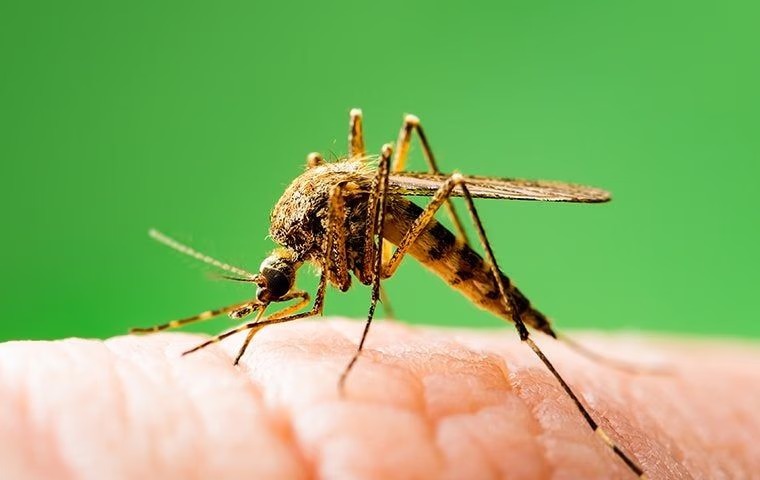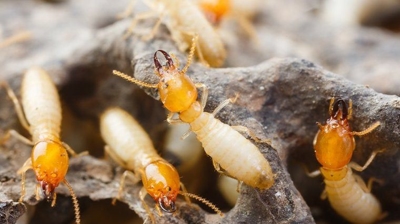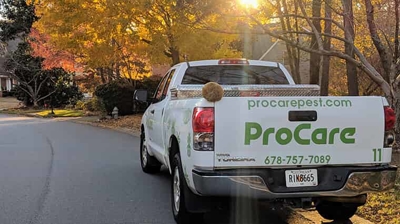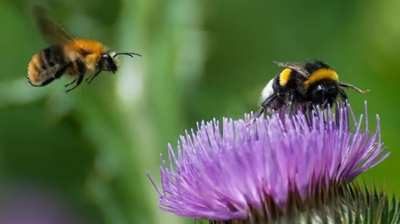
The Safe & Effective Way To Keep Mosquitoes Away From Your Lawrenceville Yard
When temperatures in Lawrenceville grow warm, mosquitoes start to appear in your yard. It happens every year. What is your strategy for preventing mosquito bites? Do you apply mosquito repellent to your skin and clothing? Do you buy torches, candles, or bug zappers?
There are many ways Lawrenceville residents attempt to prevent mosquito bites, but these methods often fall short, even deterrents that work, such as mosquito repellent. It is not only miserable to douse yourself with mosquito repellent every time you go out into your yard; those repellents don't provide complete protection.
If you decide to purchase products that promise to keep mosquitoes out of your yard, you'll have even less success preventing bites. So, what can you do? Join us as we look at how mosquitoes are a problem, how you can reduce this problem with natural methods, and how mosquito pest control in Lawrenceville can get rid of mosquitoes.
The Role Mosquitoes Play In Our Ecosystem

It may not seem like it, but mosquitoes are important to our ecosystem. How? They are a part of the ecological food chain. While it would be nice to live in a world without mosquitoes, these insects are needed. They are food for a long list of animals. Therefore, the goal of your pest control provider is not to eradicate mosquitoes but to keep mosquitoes out of areas where their presence is unhelpful, such as your backyard. There are many ways to control mosquitoes. Some are not beneficial to your health.
At ProCare Pest Services, we use methods and products that disrupt mosquito reproduction and development on your property. We believe this is the best way to keep mosquitoes away from your yard. You are a part of this environmentally friendly solution. Let's look at the benefits of being part of the solution.
The Many Way Mosquitoes Can Ruin Your Outdoor Space

Why Choose ProCare Pest Services?
-
Locally Owned & Operated
-
Timely Services Available
-
Free Inspections for Your Home or Business
-
Modern & Effective Pest Control Methods
The Secret To The Most Effective Eco-Friendly Mosquito Control
At ProCare Pest Services, we address your mosquitoes in three ways. Each of these provides a layer of protection, but none offer the best control on their own.
Recommendations
We evaluate your property and let you know what vulnerabilities exist. Every yard is a little bit different. We may alert you to yard equipment on your property catching the rain. You might have potted shrubs with water captured in the pots. The gutter system on your home could have a broken downspout or splash block. There may be a tarp covering a pile of objects and a puddle of water trapped on top. Mosquitoes only need one inch of water to breed. After our inspection and evaluation process, we report our findings to you and give you the data you need to address mosquito breeding, moist habitats, and other conducive conditions.
-
"Great service"
Great service...we have used ProCare for several years...
Liz H. -
"Extremely pleased with the company"
Professional! Communication was excellent. Arrived on time did a great job.
Tonja B. -
"ProCare Pest Services is simply the BEST"
They were recommended by a neighbor and have exceeded my expectations.
Sara R. -
"We love ProCare"
We love ProCare! Have been with them for almost 6 years now and have never had a negative experience.
Shawn K.
Mist Treatment
We use a naturally-derived product to spray for mosquitoes in your yard and knock down adult mosquitoes. We can do this as a one-time treatment before an outdoor event or treat your property routinely during mosquito season, between April and October in Lawrenceville. Applying a mist treatment to mosquito resting sites is like flicking a reset button. It takes time for new mosquitoes to enter your yard, lay eggs, and create a new swarm. On average, the development from egg to adult is a little over a week. You can deter this development by pouring out stagnant water resources that contain mosquito eggs, larvae, and pupae.
Mosquito Buckets
The most powerful tool in our arsenal is In2Care. We deploy traps that female mosquitoes can't resist. These traps provide a perfect breeding environment and destroy eggs deposited in them. More than this, the female mosquitoes pick up the active ingredient and spread it to other potential breeding sites outside of the traps. Don't worry, the active ingredient is a biological fungus that is only toxic to insects. It isn't going to harm you, your kids, your pets, or the animals in your yard. If traps are the only treatment method used, you may notice some mosquitoes still flying around in your yard. Traps don't stop female mosquitoes that are searching for a blood meal. You'll need to give this treatment method three to four weeks to reduce the population of mosquitoes in your yard significantly. After the initial impact period, your mosquito control will be noticeable and entirely sustainable. We know of no better way to keep control of mosquito populations and prevent mosquito bites.
Every spring, mosquitoes come back. If you're reading this in spring, there is no time like the present to start thinking about residential mosquito control, but you can get started with mosquito control at any time of the year. Are you tired of swatting mosquitoes? Call in the ProCare Mosquito SWAT team. We'll help you get control of mosquitoes and take your backyard back.
Five Eco-Friendly & Effective Mosquito Prevention Tips
Almost all the mosquitoes that bite you in your yard are mosquitoes that live in your yard. Mosquitoes don't fly from yard to yard looking for someone to bite. Female mosquitoes tend to hang out in the area where they hatch because male mosquitoes don't live long, and they're going to have the best chance of getting eggs fertilized where there are lots of male mosquitoes flying around. Tiger mosquitoes, considered one of the worst mosquitoes in the United States, don't travel more than about 300 feet in their entire lifetime. Therefore, you can address these and other pest mosquitoes by altering conditions around your home.
- Address stagnant water. Many pest mosquitoes breed in stagnant water. There are many places in your yard where stagnant water can collect, such as flower pots, kiddie pools, birdbaths, clogged gutters, and more. Remove containers and address the conditions that can promote rainwater collection.
- Address moisture. Mosquitoes need to stay hydrated. When they come into your yard, they'll hide in moist habitats, such as your landscape vegetation, stacked wood, leaf litter, leave piles, brush piles, and other locations that can be damp with moisture. Yard work can reduce the organic debris that traps moisture, and reducing unnecessary vegetation in your landscaping will help keep things dry.
- Address food sources. Mosquitoes don't survive on blood; they eat nectar and plant sap. You can make your yard less attractive to mosquitoes by considering ways to reduce the food. Your first step should be to deal with lawn weed problems. The tiny flowers on unwanted weeds offer plenty of nectar for mosquitoes.
- Use plants that deter mosquitoes. There are several plants mosquitoes don't like, such as citronella, lavender, rosemary, basil, catnip, and lemon balm. Pick the plants that smell good to you and beautify your landscaping with them. You should be aware that mosquito-repellent plants work better when rubbed or agitated to activate the scents. While not the best way to repel mosquitoes, this step is worth doing.
- Remove plants that help mosquitoes reproduce. Several plants can attract mosquitos to your yard, such as water lilies, lettuce, and hyacinths. Consider removing these plants.
If you take these steps and stay on top of mosquito management in your yard, you'll see a big difference. If you don't have the time, energy, or inclination, or you want to add an effective layer of protection, we can help. We provide mosquito control services that complement what you're doing or provide mosquito management where none exists.
Complete the form below to request your quote.

Stay In The Know
-
 Keep Your Atlanta Home Fly-Free: How ProCare Manages House Flies, Fruit Flies, and Other Nuisance FliesRead More
Keep Your Atlanta Home Fly-Free: How ProCare Manages House Flies, Fruit Flies, and Other Nuisance FliesRead More -
 DIY pest control?Read More
DIY pest control?Read More -
 ProCare: The Best Pest Control Solutions for Atlanta BusinessesRead More
ProCare: The Best Pest Control Solutions for Atlanta BusinessesRead More -
 3 Signs You Might Have a Termite Problem in Atlanta—and How to Spot Them EarlyRead More
3 Signs You Might Have a Termite Problem in Atlanta—and How to Spot Them EarlyRead More -
 Your Year-Round Defense Against Fall Bugs and Joro Spiders in AtlantaRead More
Your Year-Round Defense Against Fall Bugs and Joro Spiders in AtlantaRead More -
 How To Solve Any Fall Pest issue in 2024Read More
How To Solve Any Fall Pest issue in 2024Read More -
 Keeping Spiders Out Of Your HomeRead More
Keeping Spiders Out Of Your HomeRead More -
 Carpenter Bee Survival Guide: Identification, Control, And PreventionRead More
Carpenter Bee Survival Guide: Identification, Control, And PreventionRead More









